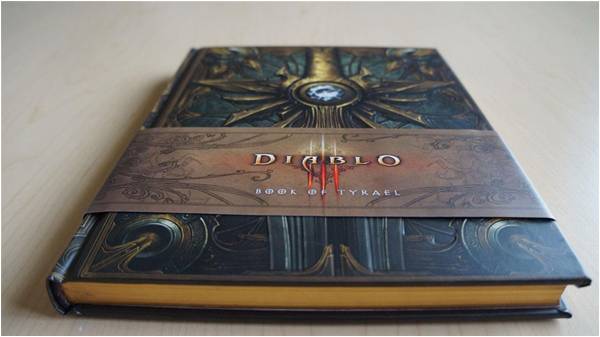
Diablo: Book of Tyrael
Blizzard Entertainment
Insight Editions (hardback), 2013
PRs 4398
A new age is dawning for humankind. Recently, brave mortal champions crushed the forces of the Burning Legion, thereby averting the prophesised End of Days and sparing all creation from darkness. But Tyrael, the former Archangel of Justice, who sacrificed his powers to become mortal, has sensed new threats looming on the horizon. He has crafted this illustrated tome as a call to arms and a guide for his human allies in their fight against evil.
The text, bristling with secrets about Sanctuary’s past, and future, is taken from the writings of Tyrael himself as well as from those of famed scholar Deckard Cain and his niece, Leah. In the uncertain times ahead, the knowledge contained in this tome may mean the difference between humanity’s salvation and damnation. So take heed, dear reader, and bear witness to the truths that lie within.
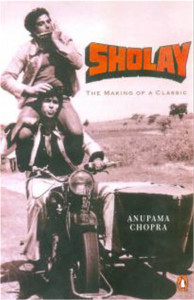
Sholay: The Making of a Classic
Anupama Chopra
Penguin India (paperback), 2000
PRs 600
Film journalist Anupama Chopra tells the fascinating story of how a four-line idea grew to become the greatest blockbuster of Indian cinema. Starting with the tricky process of casting, moving on to the actual filming over two years in a barren, rocky landscape, and finally the first weeks after the film’s release when the audience stayed away and the trade declared it a flop; this is a story as dramatic and entertaining as Sholay itself. With the skill of a consummate storyteller, Anupama Chopra describes Amitabh Bachchan’s struggle to convince the Sippys to choose him, an actor with ten flops behind him, over the flamboyant Shatrughan Sinha; the last-minute confusion over dates that led to Danny Dengzongpa’s exit from the fim, handing the role of Gabbar Singh to Amjad Khan; and the budding romance between Hema Malini and Dharmendra during the shooting that made the spot boys some extra money and almost killed Amitabh.
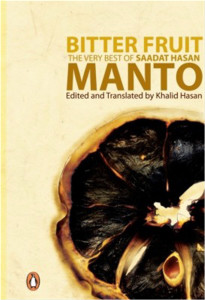
Bitter Fruit: The Very Best of Saadat Hasan Manto
Edited and Translated by Khalid Hasan
Penguin India (paperback), 2008
PRs 1300
The most widely read and the most translated writer in Urdu, Saadat Hasan Manto constantly challenged the hypocrisy and sham morality of civilized society. Out of this rebellious streak, and fuelled by the burning restlessness of his imagination, he produced a powerful body of work that continues to challenge complacency and demand attention. More than half a century after his death at the age of forty-three in Lahore, he remains anathema to the establishment. Saadat Hasan Manto wanted to be remembered as the greatest short-story writer ever; as his epitaph would have it, his only competitor is God. Indeed, he is best known for his Partition stories, where he lays bare the absurdity of the religious divide that would forever unhinge the lives of two nations. No other writer has been able to capture the devastation of Partition as Manto has. But, as this exhaustive anthology shows, Manto’s best work sweeps across genres and states of mind. The short stories shock and seduce, the sketches wring out the sharp brevity of truth, the biographical portraits entice with their candor, the letters to Uncle Sam drip with sarcasm; while the lone play smolders with desire that finds fulfillment in death. Manto also gives us his take on the Bombay film world of his time. This collection also carries intimate observations about Manto by his family and friends. Khalid Hasan’s brilliant translation brings to English Manto’s bite, his lyricism and the authenticity of his voice. MANTO’S PRAYER: Dear God, master of the universe, compassionate and merciful: we who are steeped in sin, kneel in supplication before your throne and beseech you to recall from this world Saadat Hasan Manto, son of Ghulam Hasan Manto, who was a man of great piety. Take him away, Lord, for he runs away from fragrance and chases after filth. He hates the bright sun, preferring dark labyrinths. He has nothing but contempt for modesty but is fascinated by the naked and the shameless.
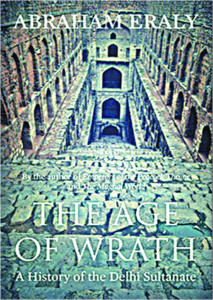
The Age of Wrath
Abraham Eraly
Pengion India (paperback), 2015
PRs 1200
The Delhi Sultanate period (1206-1526) is commonly portrayed as an age of chaos and violence-of plundering kings, turbulent dynasties, and the aggressive imposition of Islam on India. But it was also the era that saw the creation of a pan-Indian empire, on the foundations of which the Mughals and the British later built their own Indian empires. The encounter between Islam and Hinduism also transformed, among other things, India’s architecture, literature, music and food. Abraham Eraly brings this fascinating period vividly alive, combining erudition with powerful storytelling, and analysis with anecdote.
Reviews
Wonderfully well researched … engrossing, enlightening. —The Hindu
Provocative; a must-read. —Mint
An insightful perspective … Eraly has a unique ability to create portraits which come to life on the page.
– Time Out
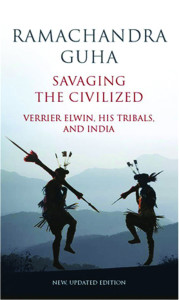
Savaging the Civilized
Ramachandra Guha
Allen Lane (hardcover), 2014
PRs 1198
This evocative and beautifully written book brings to life one of the most remarkable figures of twentieth-century India. Verrier Elwin (1902-64) was an anthropologist, poet, Gandhian, hedonist, Englishman and Indian. Savaging the Civilized reveals a many-sided man, a friend of the elite who was at home with the impoverished and the destitute; a charismatic charmer of women who was comfortable with intellectuals such as Arthur Koestler and Jawaharlal Nehru; an anthropologist who lived and loved with the tribes yet who wrote literary essays and monographs for the learned. Savaging the Civilized is both biography and history, an exploration through Elwin’s life of some of the great debates of our times, such as the impact of economic development and cultural pluralism versus cultural homogeneity. For this new edition, Ramachandra Guha has added a long new introduction, stressing the relevance of Elwin’s work to current debates on adivasis, Naxalites and Indian democracy.

